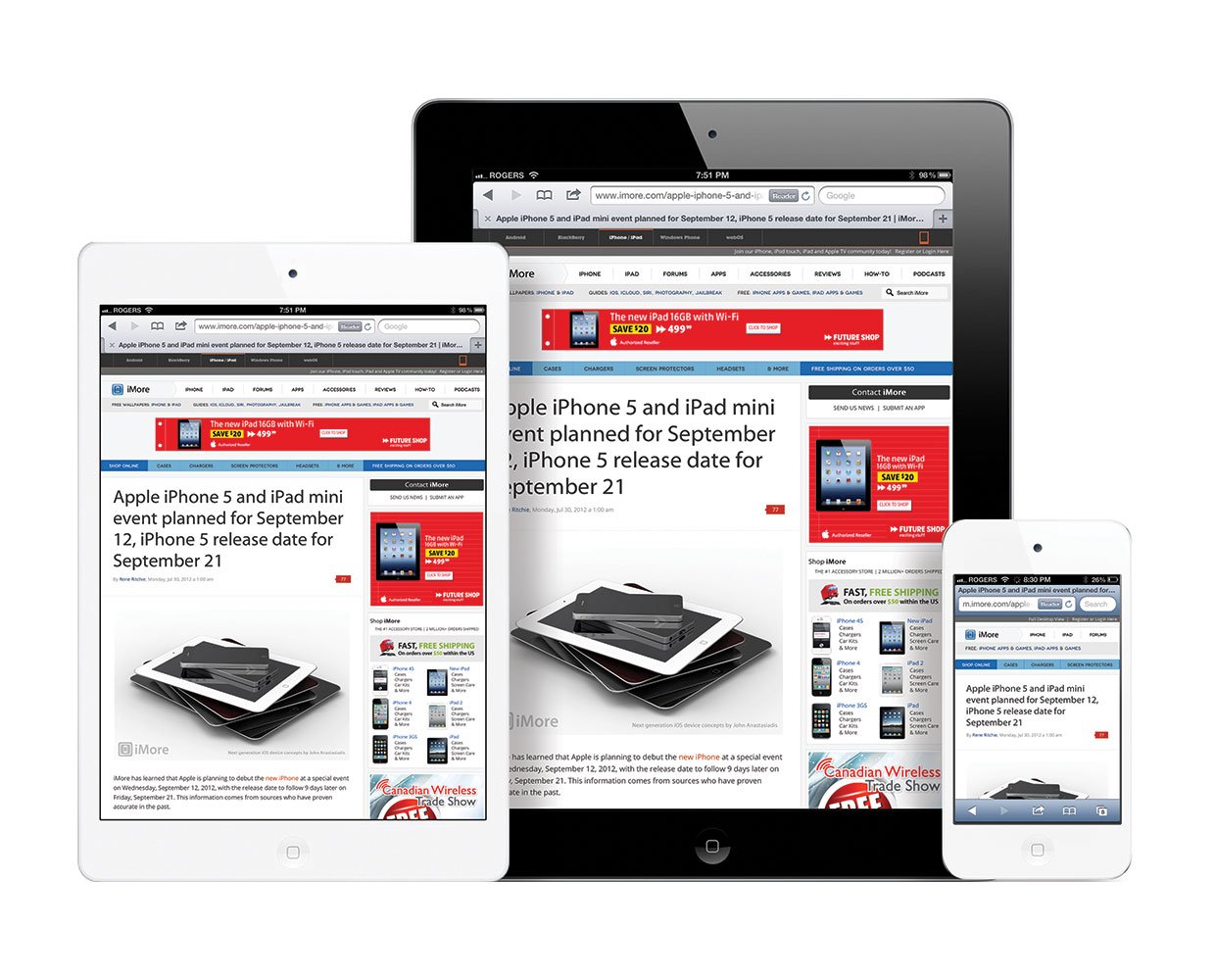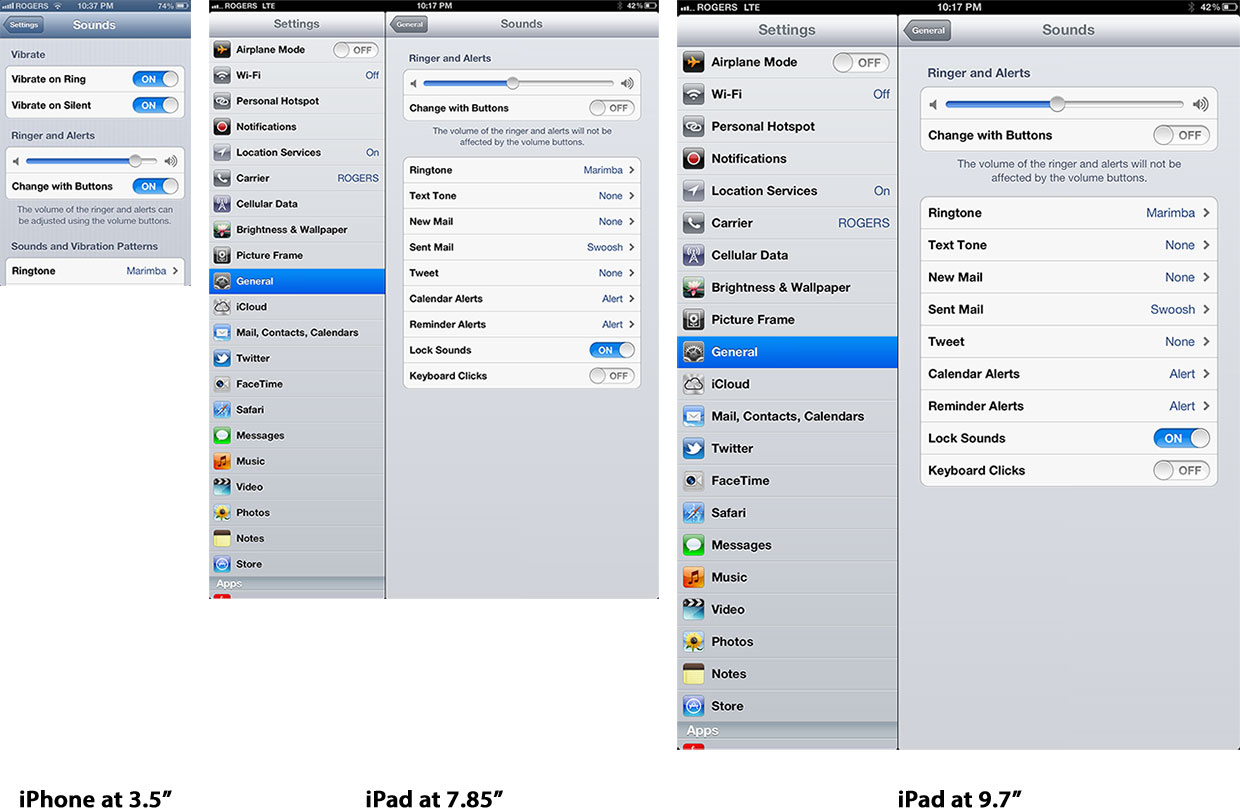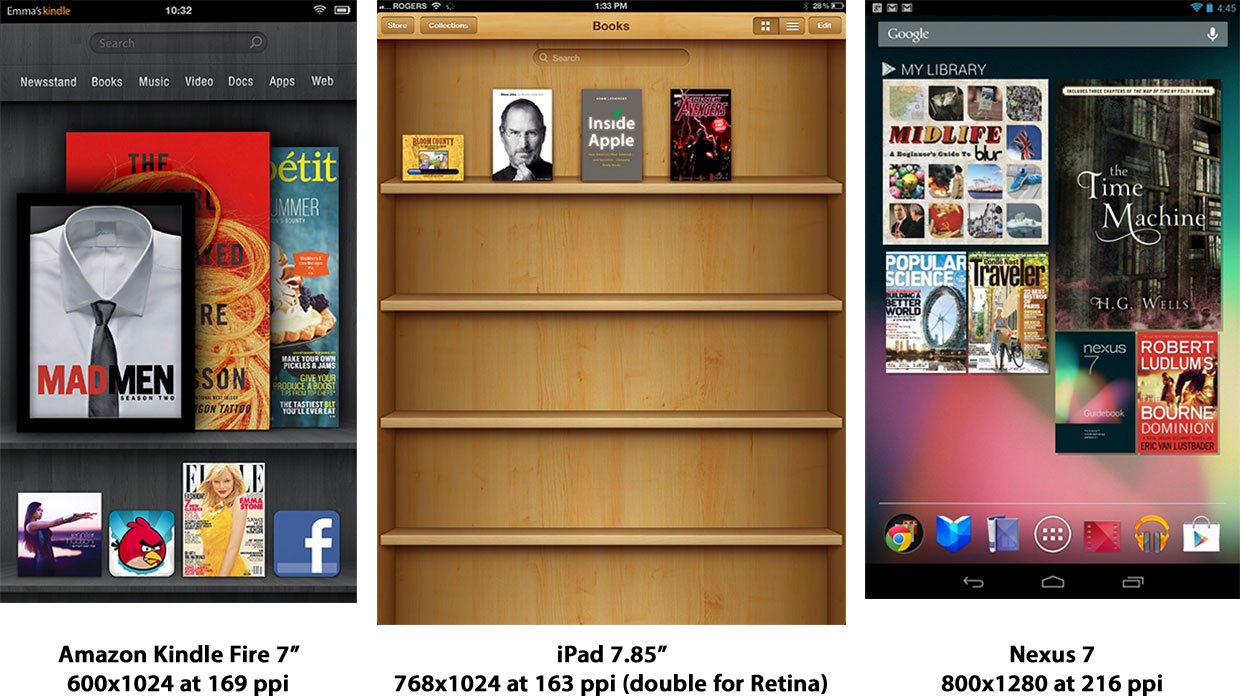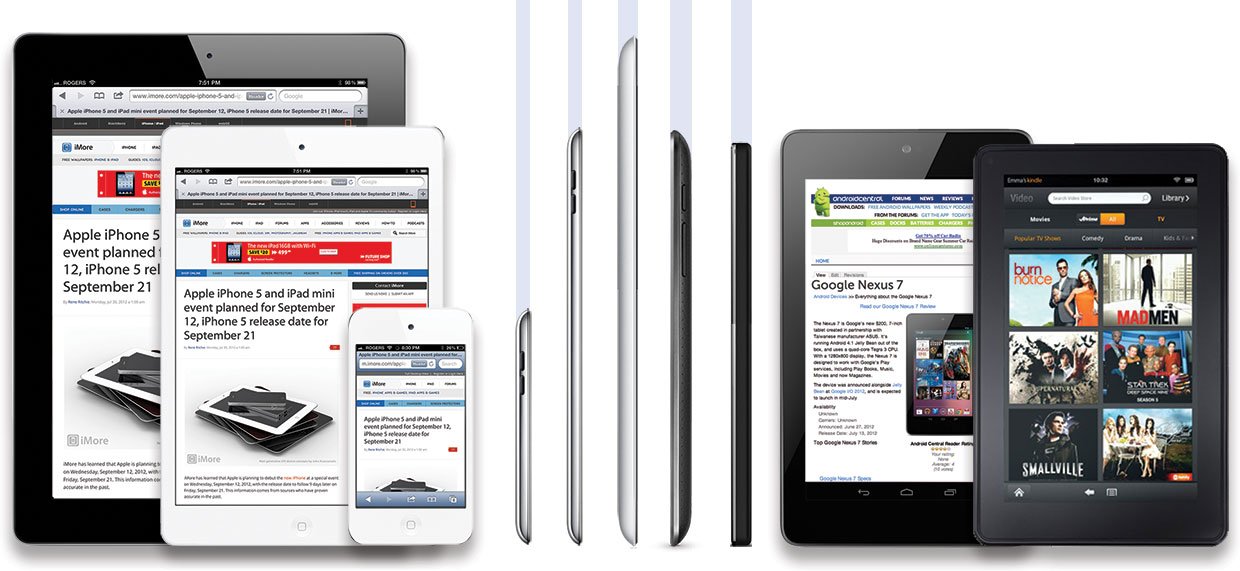iPad mini won't be much smaller, but will be a lot narrower, thinner, and lighter

iMore offers spot-on advice and guidance from our team of experts, with decades of Apple device experience to lean on. Learn more with iMore!
You are now subscribed
Your newsletter sign-up was successful
iMore previously reported that Apple would be releasing an iPad mini in October for around $200-$250, and that it would be announced at the iPhone 5 event on September 12. At the time we heard that it looked and worked like the 9.7-inch iPad, only smaller. That makes sense both from a financial and interface perspective. However, unlike the next iPhone whose parts leaks have given us an idea of just what it might look like, the exact design of the 7-inch iPad has been much more mysterious. Earlier tonight, however, Seth Weintraub from 9to5Mac posted a mockup of the iPad mini showing a narrower profile with a much thinner size bezel than the 9.7-inch iPad.
Based on several sources, I believe that design to be an accurate representation of what the iPad mini will look like. In addition, it's my understanding that it will be the exact same thinness as the iPod touch, which is substantially thinner than the 9.7-inch iPad. The quick mockup above shows what I believe are accurate proportions for the iPad mini compared to the 9.7-inch iPad and the current generation iPod touch 4.
Looking at it, the iPad mini may not seem radically smaller than the 9.7-inch iPad. And that's the point. It's not supposed to be a major compromise in screen size or usability. It is, however, thinner and lighter enough to make a substantial difference. Holding it with one hand will be easier, and holding it for prolonged periods of time will be much easier.
It's those two elements, the lightness at that size, that allows for the smaller bezel -- just like the iPod touch's thinness and lightness allows for even less size bezel. (Obviously the top and bottom bezel aren't as radically thin, due to the components that need to be placed there, like the Home button.)
Most importantly, this isn't a big iPod touch.
The Google Nexus 7 is arguably closer to a big iPod touch than this device. The Nexus 7, in part, scales up smartphone interface elements and apps. The iPad mini runs the iPad version of iOS and scales it down. The iPad mini is an iPad, and that makes a tremendous difference. That allows it to run that higher class of apps that Steve Jobs talked about.
This is a full on iPad, just smaller and lighter.
iMore offers spot-on advice and guidance from our team of experts, with decades of Apple device experience to lean on. Learn more with iMore!


Likewise, the iPad mini not intended to woo away people who might currently be buying a Google Nexus 7 or Amazon Kindle Fire -- not to be a jerk, but that's not a significant market for Apple. While Apple might want to nip those devices in the bud now, as opposed to when they hit their second or third generation and become truly competitive, it seems like the primary consideration right now is a far more massive market, a hundreds of millions of devices sold market:
People who haven't yet bought an iPad because it was too big or too expensive, but would buy it if was lighter and cheaper.
At around $200-$250, thin, and very light, Apple will lower the barrier of entry and once again greatly expand the reach of iOS. While that might cannibalize the existing iPad market, Apple has repeatedly shown a willingness to do just that -- they'd much rather cannibalize themselves than let a competitor do it. The iPod mini, iPod nano, and even 11-inch MacBook Air are prime examples.
The iPad mini should hit the shelves in time for the holidays. And it should sell like hotcakes.
Note: For some of the discussion behind all of this, check out the Branch M.G. Siegler hosted last night with me, Seth Weintraub, Mark Gurman, Matthew Panzarino, Jim Dalyrymple, and several others.
Update 1: John Gruber of Daring Fireball has weighed in, adding:
The iPad Mini, based on my best guess hunch dimensions of 200 × 135 x 7.2 mm = 193,680 cubic mm. Divide and you get 78 percent. The Nexus 7 weighs 340 grams, so, let’s guess that the iPad Mini will weigh just 265 grams.For comparison, the WiFi-only iPad (3) weighs 652 grams, and the Amazon Kindle 3G with keyboard weighs about 247 grams. So a sub-300-gram smaller iPad would be pretty light.
Update 2: Here's another quick mockup, this time giving a rough example of how thin the iPad mini will be, and how that compares not only with existing iOS devices, but the Google Nexus 7 and Amazon Kindle Fire as well.


Rene Ritchie is one of the most respected Apple analysts in the business, reaching a combined audience of over 40 million readers a month. His YouTube channel, Vector, has over 90 thousand subscribers and 14 million views and his podcasts, including Debug, have been downloaded over 20 million times. He also regularly co-hosts MacBreak Weekly for the TWiT network and co-hosted CES Live! and Talk Mobile. Based in Montreal, Rene is a former director of product marketing, web developer, and graphic designer. He's authored several books and appeared on numerous television and radio segments to discuss Apple and the technology industry. When not working, he likes to cook, grapple, and spend time with his friends and family.
